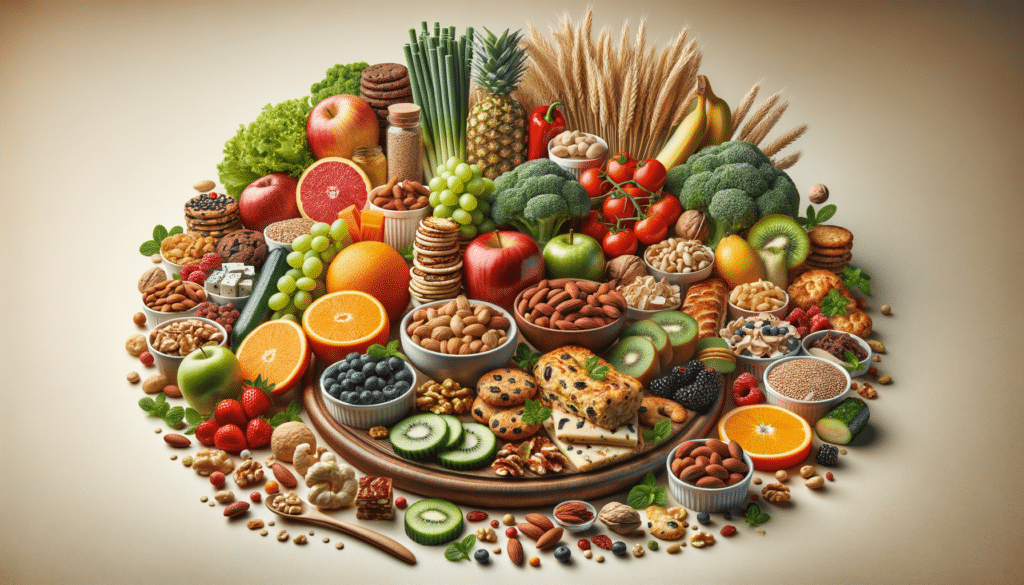The Role of Snacks in a Balanced Diet
Snacking often gets a bad reputation, especially when associated with unhealthy options that contribute to weight gain. However, when chosen wisely, snacks can play a crucial role in a balanced diet, aiding in weight management and overall health. Snacks can help maintain energy levels, curb hunger between meals, and provide essential nutrients that might be missed in main meals. The key is to select snacks that are nutrient-dense, providing vitamins, minerals, and fiber without excessive calories.
Healthy snacks can help stabilize blood sugar levels, which is particularly important for maintaining energy throughout the day. For those aiming for weight loss, snacks can prevent overeating at meal times by keeping hunger at bay. It’s important to focus on snacks that are high in protein and fiber, as these nutrients are more satiating and can help control appetite.
Incorporating snacks into a balanced diet requires planning and mindfulness. By understanding the nutritional value of different foods and how they fit into your daily calorie needs, you can make informed choices that support your health goals.
Top Nutrient-Dense Snacks for Weight Loss
When it comes to choosing snacks for weight loss, nutrient density is key. Here are some options that provide essential nutrients without excessive calories:
- Nuts and Seeds: Rich in healthy fats, protein, and fiber, nuts and seeds are a convenient snack option. A small handful can provide a satisfying crunch and keep hunger at bay.
- Greek Yogurt: High in protein and probiotics, Greek yogurt is an excellent choice for a creamy, satisfying snack. Pair it with fresh fruits or a sprinkle of nuts for added flavor and nutrients.
- Vegetable Sticks with Hummus: Fresh vegetables like carrots, celery, and bell peppers paired with hummus provide fiber, vitamins, and healthy fats.
- Fruit Slices with Nut Butter: Apples or bananas with a spread of almond or peanut butter offer a balance of carbohydrates, protein, and healthy fats.
These snacks not only support weight loss but also contribute to overall health by providing essential nutrients that promote heart health, digestion, and more.
Understanding Portion Control
Even healthy snacks can contribute to weight gain if not consumed in moderation. Portion control is essential to ensure that snacks support your weight loss efforts rather than hinder them. Understanding serving sizes and calorie content can help you make smarter choices.
For instance, while nuts are a healthy option, they are also calorie-dense. It’s important to measure out a serving rather than eating directly from the package. Similarly, while fruits are nutritious, they contain natural sugars that can add up if consumed in large quantities.
Using smaller plates or bowls for snacks can help visually trick your brain into feeling satisfied with less. Additionally, mindful eating practices, such as savoring each bite and eating slowly, can enhance the snacking experience and prevent overeating.
Incorporating Snacks into Your Daily Routine
To integrate healthy snacks into your daily routine, planning is crucial. Start by identifying the times of day when you’re most likely to feel hungry. This could be mid-morning or late afternoon. By having pre-portioned snacks ready, you can avoid reaching for unhealthy options out of convenience.
Consider preparing snack packs at the beginning of the week. Include a variety of options to keep things interesting and ensure a range of nutrients. For example, you could prepare small containers of mixed nuts, chopped vegetables, or fruit slices.
Experiment with different combinations to find what satisfies your hunger and taste preferences. Over time, you’ll develop a repertoire of go-to snacks that support your dietary goals.
Conclusion: Making Snacking Work for You
Healthy snacking is an integral part of a balanced diet, particularly for those aiming to lose weight. By choosing nutrient-dense options, practicing portion control, and planning ahead, snacks can help you achieve your health goals without feeling deprived. Remember, the key is balance and variety, ensuring that your snacks complement your meals and provide the nutrients your body needs.
Embrace the art of mindful snacking, and let your journey to a healthier lifestyle be both enjoyable and sustainable.





